Donald Trump might not be good news for America, but he's great news for the TV networks
Out of America: Fawning over the billionaire’s every outlandish word and deed has brought him $1.9bn in free publicity. So much for democracy

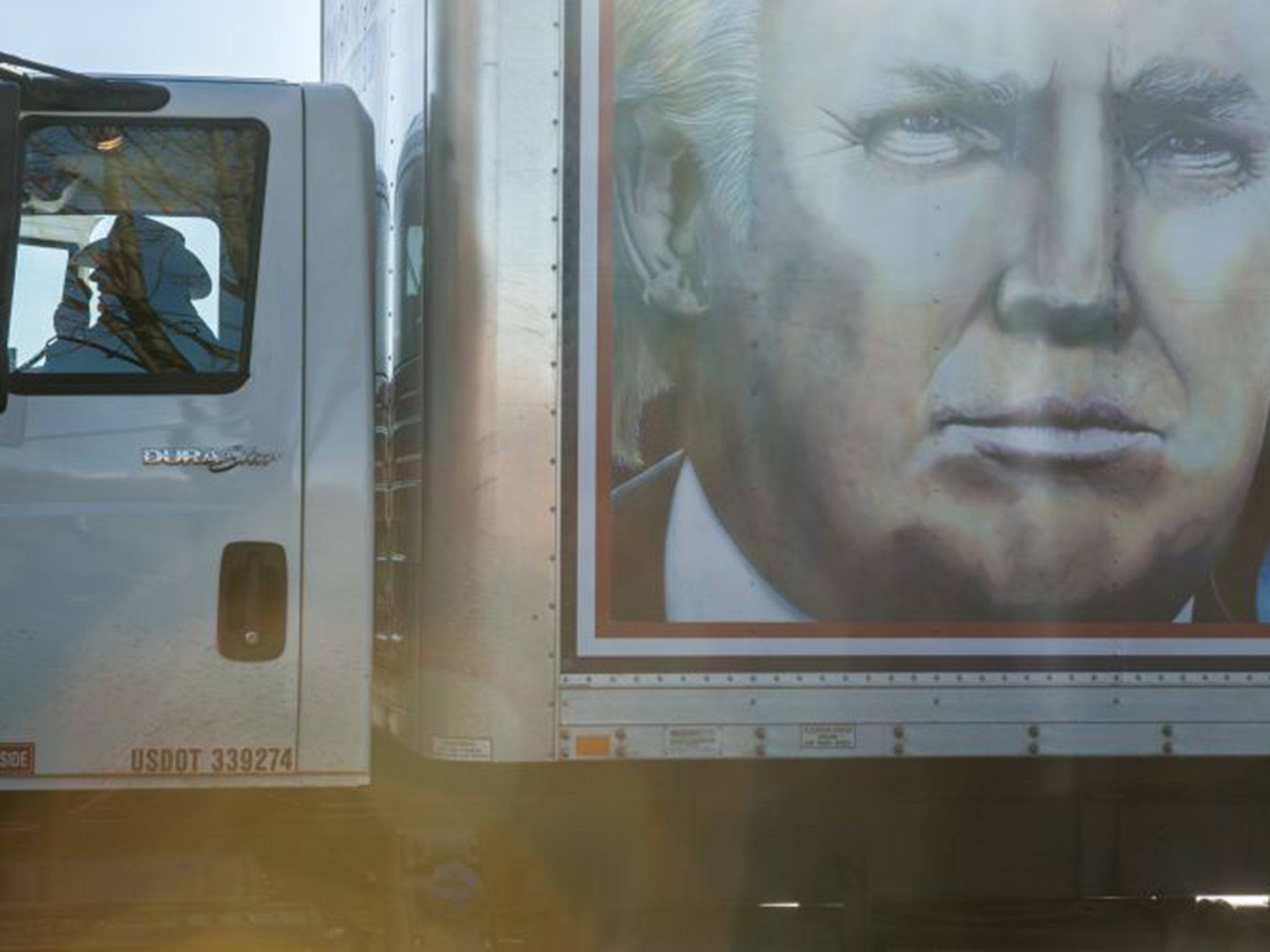
How different it was in the good old days of the 1950s, when prosperity reigned in the USA, when the citizenry was content, and Charles “Engine Charlie” Wilson, the chairman of General Motors, could boast that “What’s good for GM is good for America.” Well, he didn’t exactly say that, but that was what he meant, and the quote is set in stone for all eternity.
Fast forward to election year 2016, when the citizenry is anything but content, when the nightmarish Donald Trump dominates the headlines, and corporate and national interests are anything but aligned. “Who would have thought this circus would come to town?” – Les Moonves, the chairman of CBS, one of the three legacy broadcast TV networks, enthused about the Trump effect at a recent media shindig. “It may not be good for America, but it’s damn good for CBS. The money’s rolling in.... This is fun.”
And for the owners of CBS, and its network rivals and cable channels such as CNN and Fox that give politics blanket coverage, this campaign has been fun like no other. Spending on political ads has gone through the roof. Viewers can’t get enough of the circus. Ratings have soared and with them ad rates. The reason, of course, is Trump. But in television’s obsession to cover his every outlandish word and deed, they have distorted the American political process.
Of course, the property tycoon and reality TV host had to be covered, as he shot to the top of the polls, turned the Republican party inside out and then cemented his position as overwhelming favourite to win its presidential nomination. “The Republican party is the biggest political story in the world right now,” Trump was bragging last week. He’s probably right.
Now don’t blame us in the dead-tree media. The New York Times, The Washington Post and the like have given a pretty balanced picture of the race. As usual they’ve unearthed most of the stories that have mattered, and insofar as possible in this personality-driven year, have tried to air the issues.
But the running is set by television, where most Americans get their news. And for TV, for all the spurious gravitas it attaches to political coverage, the thrill of celebrity, controversy and the whiff of cordite is all. Trump, with his personal experience of how the medium works, provides all three by the bucketload. No matter that he sucks up all the available airtime, depriving rivals of coverage. For the networks he’s the gift that never stops giving.
As the great journalist and critic H L Mencken wrote back in 1926, “no one ever went broke by underestimating the intelligence of the American people”. (Correction – as with Charles Wilson’s musing on GM, he didn’t quite say that. Mencken’s exact words were… the intelligence “of the great masses of the plain people”. But again, the meaning is crystal clear.) CBS and the rest are merely proving the point.
The fawning attention lavished on Trump has enabled by far the richest candidate to run an improbably frugal campaign. This was supposed to be an election dominated by dark money, sinister Political Action Committees (PACs), and hundreds of millions of dollars of funding from zillionaires such as the Koch brothers and Sheldon Adelson. It hasn’t happened, or not yet. Instead, the media provide the money – above all for Trump.
The king of the Super PACs was Jeb Bush, who spent $82m (£57m) on paid media ads, and much good it did him. Next, according to figures from mediaQuant, a company which researches such matters, were Marco Rubio (who dropped out last week) with $55m, and Ted Cruz, Trump’s closest rival, with $22m. Trump himself spent a mere $10m. But that was more than adequate, given the free coverage he received.
MediaQuant has done the sums. It computes that by the end of February he had received $1.9bn worth of free coverage, compared with $1.2bn for his 16 Republican opponents combined. Cruz comes closest, with $313m. Yes, some of the Trump coverage has been unfavourable. But in this extraordinary campaign, criticism seems only to increase his appeal.
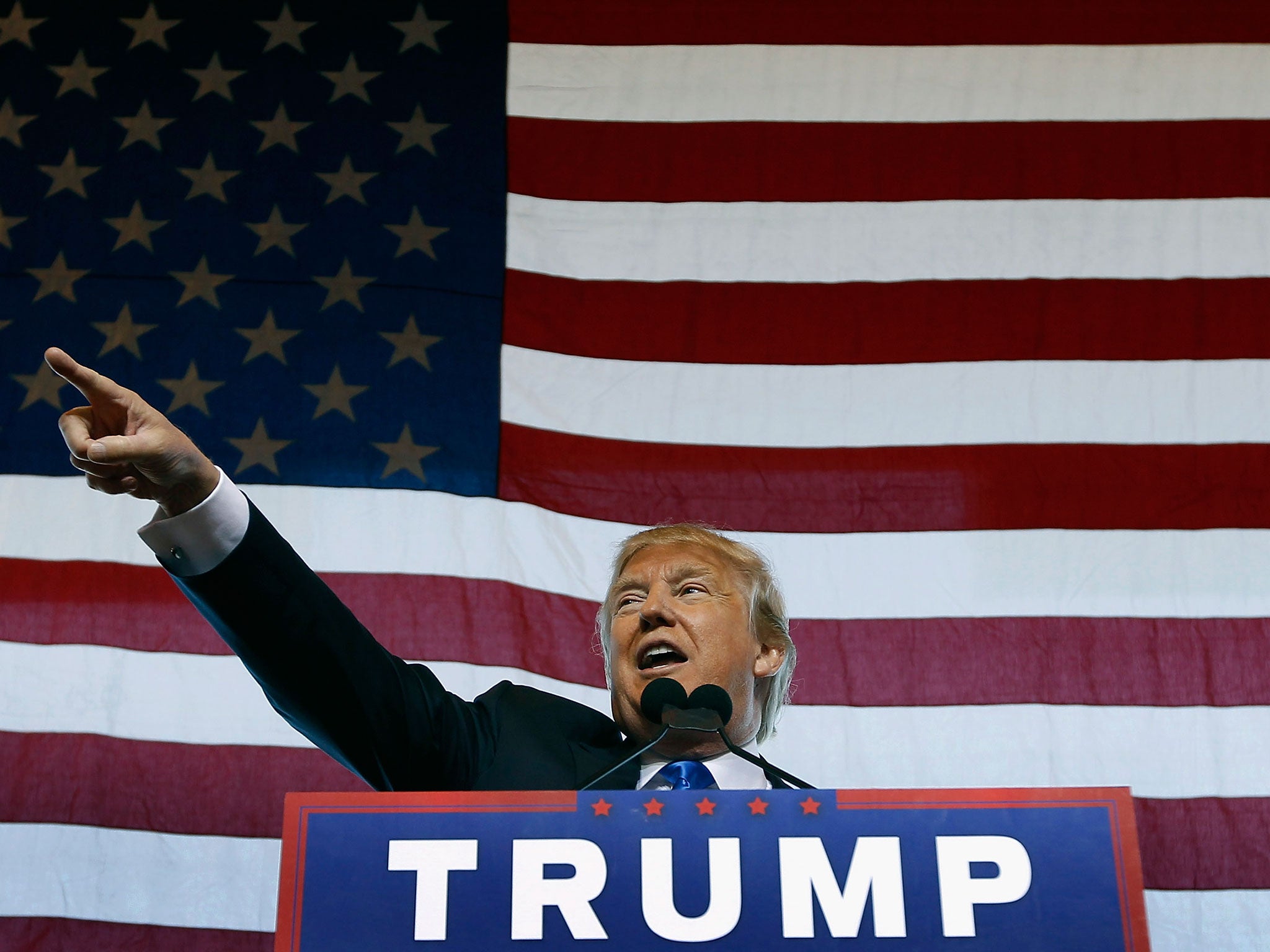
And the TV coverage simply plays into his hands. Most cringe-worthy was the aftermath of the “Super-Tuesday” primaries on 1 March. Sure, Trump had a great night, and yes, politics are also about personalities. But was that justification for every channel to spend an hour of prime time covering his victory speech, the first half of which amounted to an infomercial for sundry Trump brands? Was there nothing better than this drivel to fill the time: the fate of another candidate or, perish the thought, a discussion of issues? No, they were mesmerised by the showman from Manhattan, and the ratings he brings.
The media can’t be wholly blamed for Trump’s rise, no more than they can be blamed for their business model, in a competitive capitalist free-for-all. But they’ve surely facilitated his ascent.
And that business model militates against democracy. The US has no real equivalent of the BBC, non-profit and with a public charter, obliged to provide equal time in party political broadcasts. Once upon a time it did have a “Fairness Doctrine”, requiring coverage of public affairs to be “honest, equitable, and balanced”. But that rule was scrapped in 1987. It also, theoretically, has its own “Equal Time” rule stipulating, with certain major exceptions, that for each minute of free airtime one candidate receives, their rivals can demand the same. But you’d never notice it.
One reason is the assumption that anyone who seeks an opposing viewpoint can easily find it in the fragmented universe of the internet. In fact, for the majority of Americans who are not political junkies, the networks and cable channels still dominate. Only a fool would argue that their obsession with Trump has not tipped votes his way.
So, let Les Moonves have the final word. “Sorry, it’s a terrible thing to say, but bring it on, Donald, go ahead, keep going.... For us, economically, Donald’s place in this election is a good thing.” Pity about America.

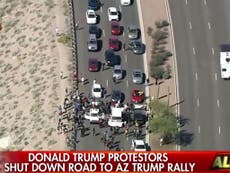
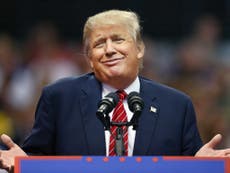
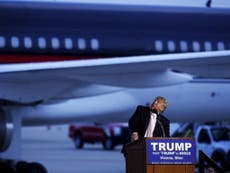
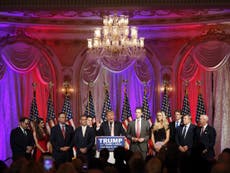
Join our commenting forum
Join thought-provoking conversations, follow other Independent readers and see their replies